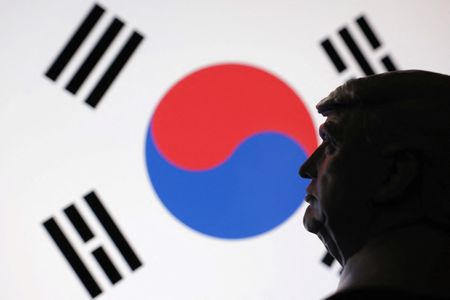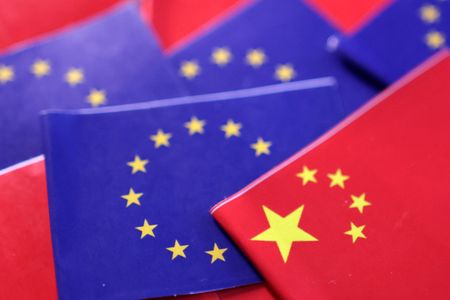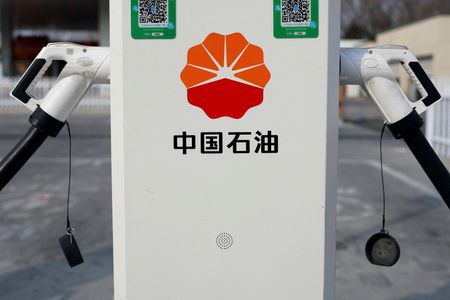By Naveen Thukral and Ella Cao
SINGAPORE/BEIJING (Reuters) -China has begun modest purchases of U.S. farm products after the leaders of both countries met last week, but traders still await significant soybean buys after the White House said Beijing pledged to buy 12 million tons by year-end.
The top market for U.S. farmers, China has turned its vast appetite for crops into a powerful trade war bargaining chip, largely avoiding U.S. wheat and soybeans in favour of other supplies, after rounds of tit-for-tat tariffs.
Chinese buyers have booked two cargoes of U.S. wheat, the first such purchases since October last year, two traders said on Thursday, while a sorghum shipment has been sent from the United States to China, a U.S. industry official said.
The deals to import U.S. agricultural goods come as Beijing confirmed on Wednesday that it suspended retaliatory tariffs on U.S. imports, including duties on farm goods, although shipments of U.S. soybeans still face a 13% tariff.
SOFT WHITE AND SPRING WHEAT CARGOES
The purchases of about 120,000 metric tons for December shipment include one cargo of U.S. soft white wheat and one of spring wheat, the sources said.
“This is more of China showing commitment to buy U.S. grains as U.S. wheat is not the cheapest,” said a Singapore-based grains trader with direct knowledge of the wheat deals. “So it is more of political move to buy these cargoes.”
On Thursday, Chinese state grains buyer COFCO held a soybean procurement signing ceremony during a major import fair in Shanghai, the head of a Chinese agriculture business association said, but no details were given.
CHEAPER BRAZILIAN SOYBEANS
The White House has said China would buy at least 12 million metric tons of U.S. soybeans in the last two months of 2025 and at least 25 million tons in each of the next three years, but Beijing has yet to confirm those figures.
China’s decision to leave intact a tariff of 13% on soybeans makes U.S. shipments too expensive for commercial buyers compared to Brazilian cargoes, traders and analysts said.
Chinese importers recently bought 20 cargoes of cheaper Brazilian soybeans as South American prices eased on expectations that U.S. sales would resume, while COFCO took three U.S. cargoes ahead of the Trump-Xi meet.
(Reporting by Naveen Thukral in Singapore and Ella Cao in Beijing; Additional reporting by Michael Hogan in Hamburg and Gus Trompiz in Paris; Editing by Sonali Paul and Clarence Fernandez)











